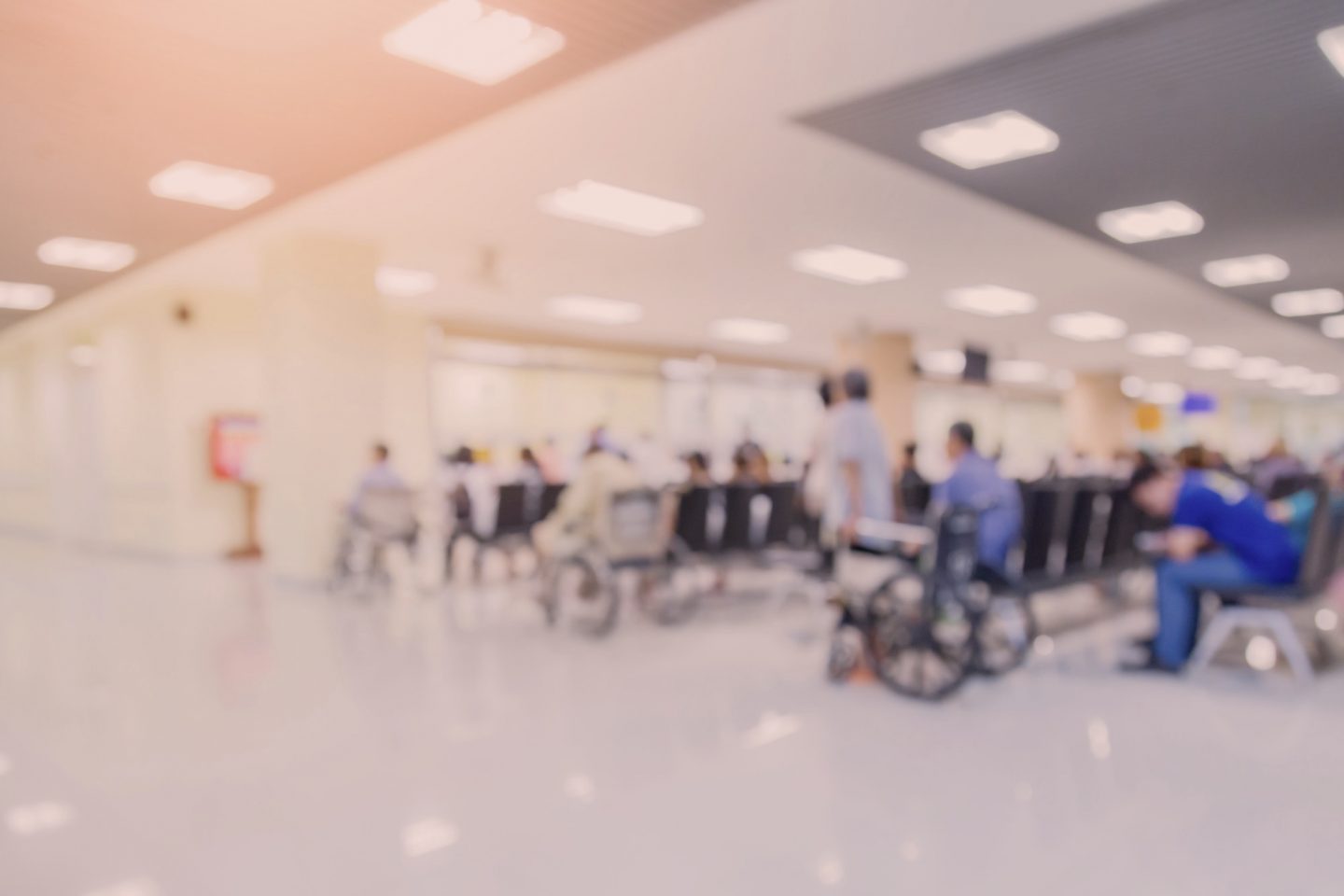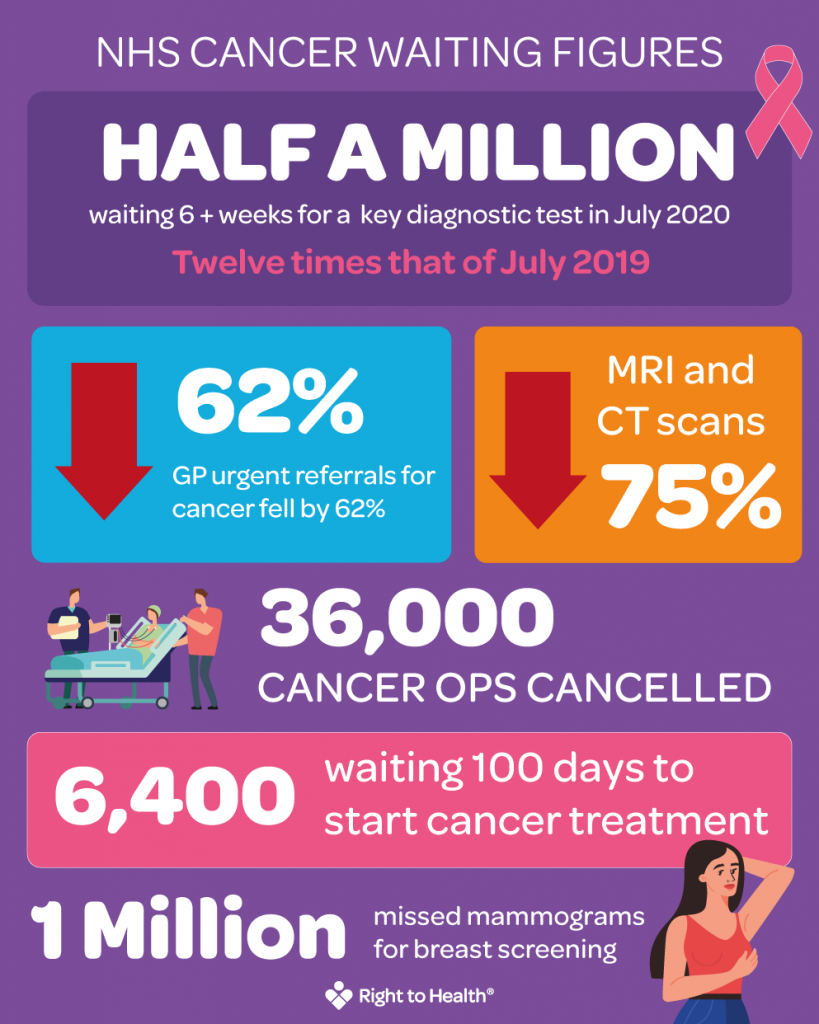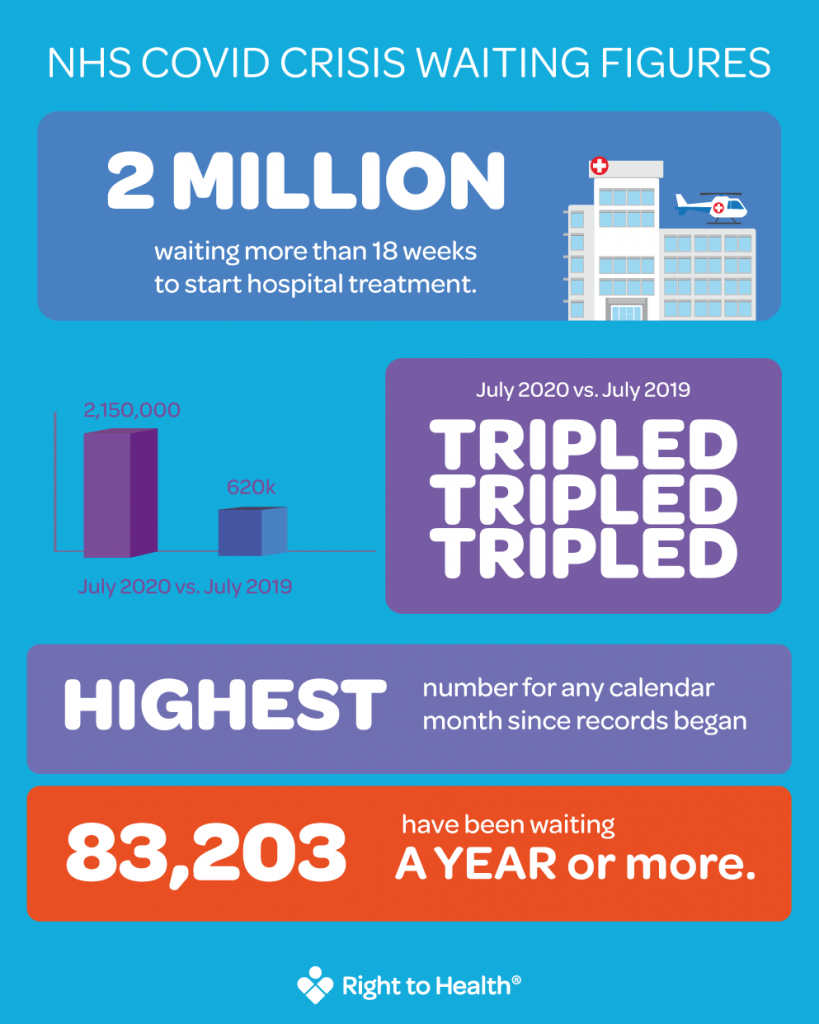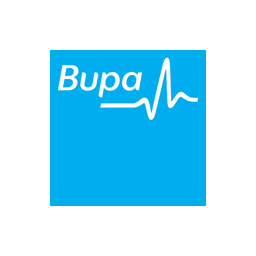Very helpful and knowledgeable about products to help advise us of our best options!
A record total of more than 2 million people – three times the figure for the same time last year – are having to wait more than 18 weeks to start hospital treatment in England, the highest number for any calendar month since current records began in August 2007.
The number of people waiting longer than a year (52 weeks) is also at the highest level for more than 10 years. (83,203 people)
These are huge numbers. With such big numbers, it’s hard to think that each number represents a patient waiting in need, potentially in pain, for hospital treatment. Long waits have a knock-on effect on patients’ families, their jobs and the wider economy.
Cancer Services have also been particularly hard hit during the Covid-19 crisis.
Since Lockdown, GP urgent referrals for cancer fell by 62%, the number of MRI and CT scans to diagnose the disease plummeted by 75% and by mid-May, 36,000 cancer operations had been cancelled.
Just under half a million patients in England have been waiting more than six weeks for a key diagnostic test in July – with the equivalent number waiting longer than six weeks in July last year at 37,206. Equivalent to a 12 times increase.
More than 6,400 patients in England with suspected cancer have waited more than 100 days to start treatment or have a diagnostic test since being referred by their GP as an urgent case. (Source : Health Service Journal.) Of those, 472 were known to have cancer and were waiting to start treatment.
Almost 1 million women across the UK have been unable to have a mammogram since March because breast cancer screening was suspended, the charity Breast Cancer Now said this week. It estimates that about 8,600 of those women will have had their diagnosis of the disease delayed.
this is not only a health issue, but an economic one too
The president of the Royal College of Surgeons of England, Prof Neil Mortensen, said to the Guardian “Patients who have now been waiting many months, even a year or more for their treatment, cannot afford to wait until next spring. For those unable to return to work due to their condition, this is not only a health issue, but an economic one too.
Gbemi Babalola, senior analyst at the King’s Fund “There needs to be honesty about what is achievable, and recognition that, as we head into the traditionally challenging winter months, long waits for routine diagnostic and surgical procedures are likely here to stay.”











